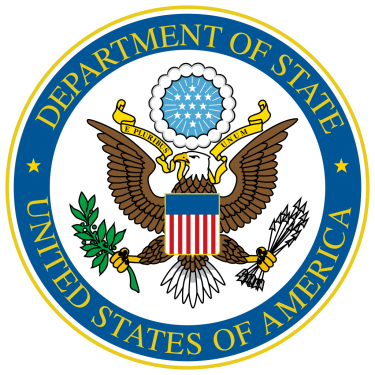The Process Involved in Filing Letters Rogatory: A Step-by-Step Guide
Letters Rogatory Explained: Facilitating Legal Cooperation Between Countries

Meaning of Letters Rogatory
Letters rogatory are official requests made by a court in one territory to a court in an additional territory, seeking aid in obtaining proof or testimony for a legal action. This step-by-step mechanism is essential in the context of worldwide regulation, where legal systems may differ, and cross-border participation is required. Letters rogatory assist in the gathering of information that may be critical for adjudicating situations, particularly in circumstances entailing complex multinational problems.
Commonly, these demands arise in civil, criminal, or management issues where a party requires evidence that lies outside the jurisdiction of the requesting court. The letters function as a way to make sure that the principles of due procedure are maintained, enabling courts to accessibility proof that might otherwise remain unattainable because of legal or geographic barriers.
The use of letters rogatory is governed by international treaties, bilateral agreements, or domestic regulations, which mark the treatments and commitments of the courts included. It is very important to note that the implementation of such demands is not assured; they depend upon the legislations and methods of the jurisdiction receiving the letter. Thus, letters rogatory are a pivotal device for cultivating lawful participation and making certain justice throughout borders.
The Process of Issuing Letters Rogatory
Issuing letters rogatory involves an organized procedure that guarantees compliance with both global and domestic lawful requirements. The requesting event, commonly a court or legal authority, drafts an official request describing the nature of the help sought, the proof or information required, and the legal basis for the demand. This file must be exact to help with understanding by the international territory.

The next step involves sending the letters rogatory to the marked international authority. This is usually done with polite networks or global lawful help frameworks, guaranteeing that the request is received and recognized by the international court. The foreign court then refines the demand according to its own lawful treatments, eventually reacting to the requesting event with the desired information or evidence, hence promoting worldwide legal cooperation.
Relevance in International Legislation
The importance of letters rogatory in international regulation can not be overstated, as they work as a crucial device for judicial teamwork across boundaries. These formal ask for help in legal matters allow courts in one territory to inquire, evidence, or the visibility of witnesses from one more territory, thus promoting the management of justice in transnational situations.
Letters rogatory are specifically important in the context of globalization, where lawful conflicts frequently cover several nations. They allow the collection of proof that might or else be inaccessible, making certain that legal procedures are informed and fair. By fostering cooperation between judicial systems, letters rogatory help maintain the guideline of legislation and promote common regard amongst nations.
Moreover, making use of letters rogatory shows a commitment to worldwide standards and principles of teamwork, mirroring the interconnected nature of modern lawful techniques. It illustrates the significance of sticking to recognized procedures and treaties, such as the Hague Convention, which supplies a structure for these demands - Letters rogatory. Ultimately, letters rogatory improve the efficiency of lawful procedures, ensuring that justice is not impeded by geographical limits
Obstacles and Limitations
Regardless of their importance, letters rogatory face a number of difficulties and restrictions that can restrain their performance. One primary issue is the varying lawful structures and treatments throughout territories, which can lead to misunderstandings and delays in the execution of requests. Different countries may have distinctive needs for the validity of letters rogatory, complicating the process even more.
Additionally, the typically drawn-out nature of global lawful participation can prevent prompt accessibility to proof or witnesses. This hold-up might detrimentally influence recurring examinations or lawful proceedings, specifically in instances needing urgent action. In addition, the lack of sources and training in some territories can cause insufficient handling of requests, causing inadequate or incomplete responses.
Social differences and varying perspectives in the direction of legal procedures can additionally posture considerable barriers. Nations Resources with much less formal lawful systems may battle to conform with the procedural roughness expected in letters rogatory. Political stress between countries can influence the desire to implement requests, resulting in an absence of cooperation and lessening the utility of this device in international legislation. These challenges require continual dialogue and reform to boost the efficacy of letters rogatory in legal participation.
Study and Examples

Conversely, obstacles can occur, as seen in an instance involving a European country looking for evidence in an ongoing criminal issue from a non-EU country - Letters rogatory. The process was delayed as a result of bureaucratic obstacles and varying legal requirements, ultimately preventing the investigation
These examples show that while letters rogatory can promote international collaboration and quicken lawful process, they additionally highlight the need for clear communication and understanding of lawful structures between nations. Such instance studies underscore the value of refining this device to boost performance and effectiveness in global legal matters.
Conclusion
In summary, letters rogatory serve as a crucial device for promoting lawful cooperation between countries, ensuring the collection of evidence and testimony across territories. Their significance in international law can not be overemphasized, as they advertise due procedure and boost the performance of cross-border lawful procedures. Obstacles such as varying political stress and lawful frameworks may prevent their performance. Proceeded efforts to boost the procedure and improve are important for promoting stronger international judicial collaboration.
Letters rogatory are official requests made by a court in one jurisdiction to a court in one more jurisdiction, seeking help in obtaining proof or statement for a legal case. The site web requesting event, generally a court or lawful authority, composes a formal demand describing the nature of the help sought, the proof or information required, and the lawful basis for the demand. The international court after that refines the demand according to its own lawful treatments, ultimately responding to the asking for party with the sought-after information or proof, thus assisting in worldwide legal teamwork.
Furthermore, the usage of letters rogatory shows a commitment to global standards and concepts of participation, showing the interconnected nature of modern-day legal methods.Global lawful collaboration with letters rogatory is not without its real-world effects, as illustrated by different instance studies that highlight both obstacles and successes.